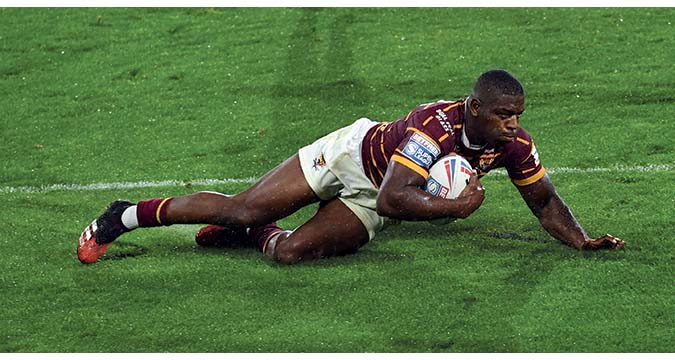 NO PROBLEM - CARRY ON AS BEFORE?
I was amazed to read that in order to help the Board make a decision on Toronto, an "objective reassessment" will be made of the value and viability of growth for Rugby League in the North American market.
Does that mean the Toronto Wolfpack, Ottawa and New York were admitted without an independent evaluation? D
NO PROBLEM - CARRY ON AS BEFORE?
I was amazed to read that in order to help the Board make a decision on Toronto, an "objective reassessment" will be made of the value and viability of growth for Rugby League in the North American market.
Does that mean the Toronto Wolfpack, Ottawa and New York were admitted without an independent evaluation? D Mailbag taster – League Express Monday 5th October
 NO PROBLEM - CARRY ON AS BEFORE?
I was amazed to read that in order to help the Board make a decision on Toronto, an "objective reassessment" will be made of the value and viability of growth for Rugby League in the North American market.
Does that mean the Toronto Wolfpack, Ottawa and New York were admitted without an independent evaluation? D
NO PROBLEM - CARRY ON AS BEFORE?
I was amazed to read that in order to help the Board make a decision on Toronto, an "objective reassessment" will be made of the value and viability of growth for Rugby League in the North American market.
Does that mean the Toronto Wolfpack, Ottawa and New York were admitted without an independent evaluation? D 